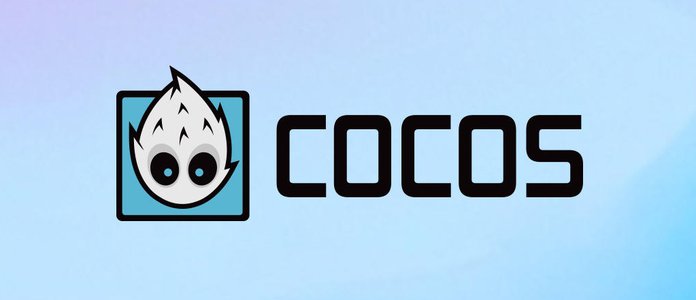In the realm of online gaming, ensuring fair play is paramount. One of the tools employed to maintain this fairness is virtual machine detection. This mechanism helps identify players who might be using virtual environments to gain unfair advantages, such as running multiple game instances or utilizing cheats undetected. Understanding how virtual machine detection works and its implications is crucial for both developers and players.
Understanding Virtual Machines in Gaming
Virtual machines (VMs) are software-based emulations of physical computers. They allow users to run multiple operating systems on a single physical machine. In gaming, VMs can be used for legitimate purposes, such as testing or development. However, they can also be exploited to bypass security measures, leading to unfair gameplay.
Legitimate Uses of VMs
Developers often use VMs to test games across different operating systems without needing multiple physical machines. This approach streamlines the development process and ensures broader compatibility.
Exploitation of VMs
Some players use VMs to run multiple instances of a game simultaneously, automate gameplay, or deploy cheats without affecting their main system. This misuse can disrupt the gaming experience for others and compromise the game's integrity.

Mechanisms of Virtual Machine Detection
To counteract the misuse of VMs, game developers and anti-cheat systems employ various detection methods:
Hardware Signature Analysis
VMs often have identifiable hardware signatures, such as specific MAC addresses or device names. Detection tools scan for these signatures to determine if a game is running in a virtual environment.
Behavioral Analysis
Anti-cheat systems monitor gameplay behavior. Unusual patterns, like rapid switching between game instances or consistent high-performance metrics, can indicate VM usage.
System File Inspection
Some detection tools examine system files and configurations for indicators of virtualization software, such as VMware or VirtualBox drivers.
Challenges in Virtual Machine Detection
While detection methods are effective, they come with challenges:
False Positives
Legitimate users, such as developers or testers, might be flagged incorrectly, leading to unwarranted bans or restrictions.
Advanced Evasion Techniques
Tech-savvy users can modify VM configurations to mimic physical machines, making detection more difficult.
Privacy Concerns
Deep system inspections can raise privacy issues among users, especially if detection tools access sensitive system information.
Virtual Machine Detection Tools
Several tools and libraries assist in detecting virtual environments:
VMAware
A library designed for security researchers and developers to detect virtual machines effectively. It offers a practical approach to identifying virtualization in various environments.
QEMU Anti-Detection Patches
These patches modify QEMU's behavior to prevent detection by altering identifiable VM characteristics.
VMDetector
A tool that scans systems for signs of virtualization, aiding in the identification of virtual environments.

Implications for Game Developers
Implementing virtual machine detection requires a balance between security and user experience:
Ensuring Fair Play
Detection helps maintain a level playing field by preventing exploitative behaviors associated with VMs.
Maintaining User Trust
Transparent communication about detection methods and data usage can alleviate privacy concerns among users.
Regular Updates
As evasion techniques evolve, detection tools must be updated regularly to remain effective.
Best Practices for Players
Players can take steps to avoid unintended detection:
Use Physical Machines for Gaming
Whenever possible, play games on physical hardware to prevent detection issues.
Stay Informed
Understand the game's policies regarding virtual machines and adhere to guidelines to avoid penalties.
Report Issues
If falsely flagged, communicate with game support teams to resolve the issue promptly.
Conclusion
Virtual machine detection plays a vital role in preserving the integrity of online gaming. While it presents certain challenges, such as potential false positives and privacy concerns, its benefits in preventing unfair practices are significant. Both developers and players must work collaboratively to ensure a fair and enjoyable gaming environment.
For developers looking for a comprehensive and seamless game protection solution, JikGuard Game Protection offers cutting-edge encryption and anti-cheat technology to ensure your game remains secure without compromising performance.Why Choose JikGuard Game Protection?
√ On-Demand Security Assessment:
Not sure if your game needs encryption? JikGuard provides free security testing and reports, helping you identify potential risks through penetration testing and in-depth analysis.√ Minimal Performance Impact:
JikGuard’s encryption system only decrypts resources when needed, ensuring that files remain encrypted in the cache and have virtually no effect on loading speed or game smoothness.√ Seamless Multi-Channel Packaging:
Supports mother package encryption, meaning all sub-packages remain protected without requiring additional processing for different distribution channels.√ No SDK Required:
Unlike traditional solutions, JikGuard does not require SDK integration—simply run a command, and the encryption process is handled automatically.√ Ultra-Low Performance Overhead:
▪ CPU usage increase: <0.2%▪ Memory consumption: <1MB
▪ Startup time increase: <25ms
▪ Package size increase: <1.3MB
Ensuring a smooth and seamless gaming experience.
With JikGuard Game Protection, you can focus on game development while ensuring top-tier security against cheats, resource leaks, and competitive analysis. Protect your game today and keep your vision intact!


































